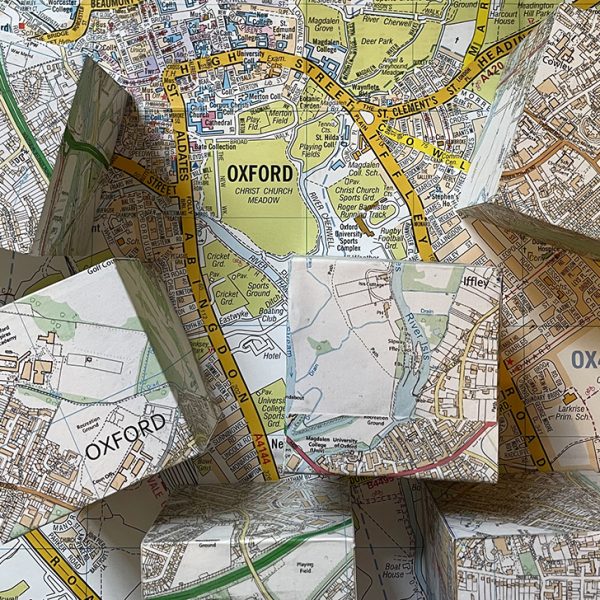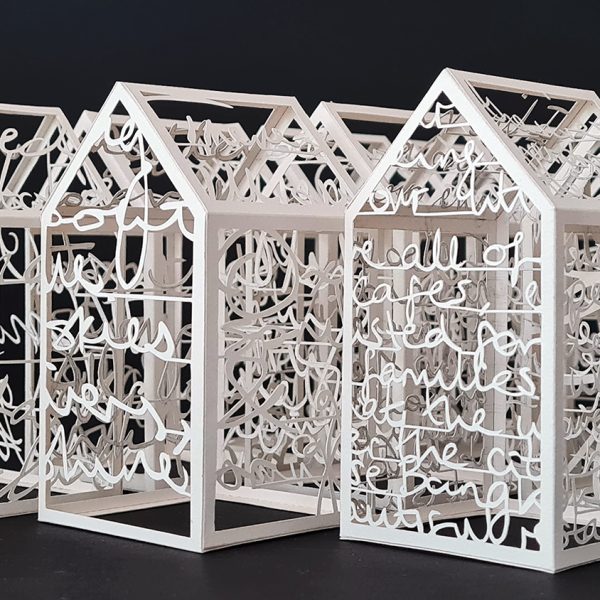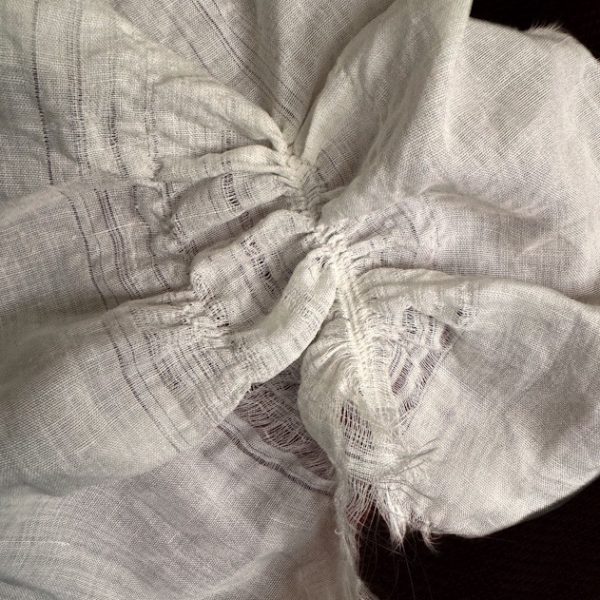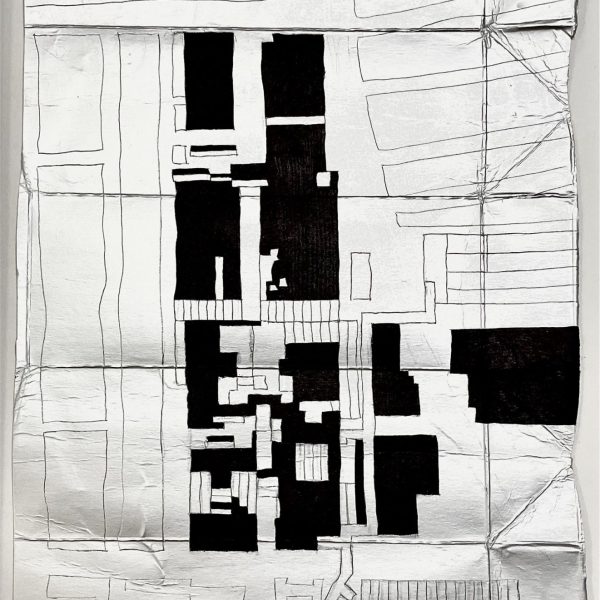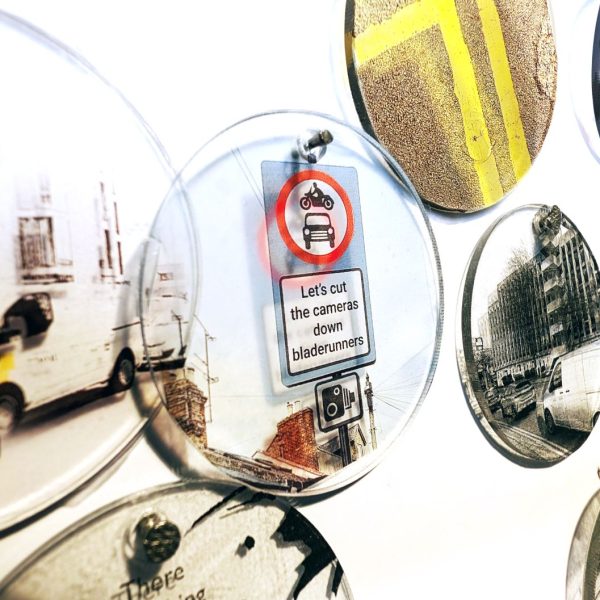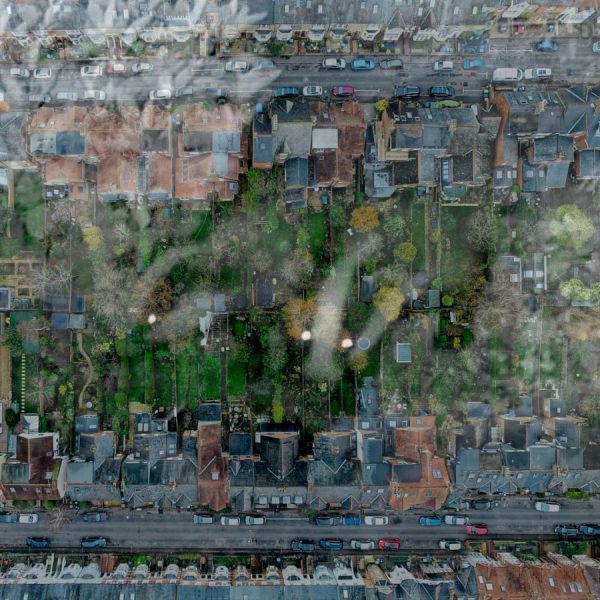A city divided in many ways, Oxford struggles with the historical legacy of town and gown, with exorbitant property pricing, educational inequality, traffic and road safety issues, and, at times, misguided regeneration.
This exhibition includes work by six local artists looking at themes of division and connection in Oxford and hopes to bring greater understanding of the issues residents face as well as suggesting some solutions on how tensions can be eased, connections established, and the city improved for all.
Paper Artist Kate Hipkiss explores the lines that both divide and connect us in her work altering maps and books. She also captures residents’ personal reflections on living in Oxford, bringing them together in an installation of paper houses into which she has cut their handwritten words. Stories of individual connections with the city are seen amongst multiple voices, capturing a sense of the collective.
In Postcards from the Edge, Deborah Pill uses postcards to investigate times of rapid social and technological change in Oxford. Her postcards look both backwards and forwards to reflect the changing dynamic across the city, exploring ideas of belonging and access, deconstruction and reconstruction, and physical boundaries such as the Cutteslowe Wall.
Using the postcard, a personal, handwritten connection that transcends both postcode borders and social boundaries, she looks at what connects and divides us and how those barriers can be crossed.
Artist Katie Taylor explores the breakdown of social systems and the often invisible crisis of hidden homelessness in Oxford. Her work delves into the breakdown of close-knit communities, where the “fabric of society” is held together by fragile connections. Through her wider art practice, Taylor seeks to restore a sense of care and dignity to those who have been pushed to the margins, aiming to rehumanizing them within the collective consciousness.
Emmett Casley’s work often draws on the impact of industry – and its loss – on a community. In Oxford, a city with high property prices and a housing shortage, there is little opportunity for the physical history of its industrial past to remain. Emmett’s work considers what remains – memories of previous lives and past communities that did not revolve around cloisters and quads, but around factories and industry.
Photographer Etain O’Carroll explores the contentious issue of Oxford’s LTNs and how their implementation has sown division in local communities. Examining the rhetoric that surrounds the debate, she reflects on the impact of media reporting, online forums, social media, and conversations with residents, as she attempts to understand the real issues at stake and how listening better might help us all to build bridges rather than divides.
Artist Lilli Tranborg asks us to consider if wildlife can live and thrive in a growing city? Designed with humans in mind, city infrastructure supports human activity and enforces ownership divisions while at the same time disrupting wildlife corridors and territories. By questioning the status quo, Lilli Tranborg’s works are intended to reimagine Oxford as a city where wildlife and humans are equally considered in harmoniously shared spaces.
Meet the Artists and Panel Discussion
Wednesday 2 April 6.30 – 8pm
Join the artists to discuss their work, the impact the issues addressed have on residents of Oxford, and potential solutions for change. The discussion will be moderated by Dr Clair Chinnery, Senior Lecturer in Fine Art, Oxford Brookes University.
Dr Clair Chinnery is an artist and academic with a wide-ranging practice rooted in sculpture, but utilising many forms. Clair has exhibited her artworks nationally and internationally in one person and group exhibitions, has published artists books and contributed scholarly texts to collective publications. Clair is a Senior Lecturer in Fine Art at Oxford Brookes University (since 2000), having previously held posts at Keele University, Duke University (NC, USA) and Kingsway College, London. She studied at Nottingham Trent University (Fine Art BA Hons), Chelsea College of Art (MA Fine Art: Sculpture) and Oxford Brookes University (PhD).
Free Entry / Click Here To Book
Changing Oxford: Connecting Communities and Spaces
Tuesday 8 April 6.30 – 8pm
In this interactive workshop, Wongani Mwanza will be guiding us through a conversation around connecting communities and spaces across Oxford. We will reflect on the topic of belonging, community engagement, design, housing and spaces during our time together. Both looking to the past and to the future of the changing cityscape of Oxford.
The workshop will include short film screenings, interactive discussion and opportunities to connect with others. Come along if you’re interested in community participation, housing, belonging or architecture and design.
About Wongani Mwanza
Wongani Mwanza is an architect, participatory urban designer and director at Transition by Design Cooperative, an architecture and design community interest company. He specialises in community-led design with an environmental & social justice focus. Wongani was a judge for the 2023 & 2024 Architecture Journal architecture awards. He co-curated Modern Art Oxford’s 2022 Adapt Transform Stories, on community responses to urban design and creativity and delivered a workshop for Modern Art’s 2024 ‘Situated Ecologies: Create With Us’ summer series. Wongani is also an associate lecturer at Oxford Brookes School of Architecture and a Design Council expert.
Free Entry / Click Here To Book

